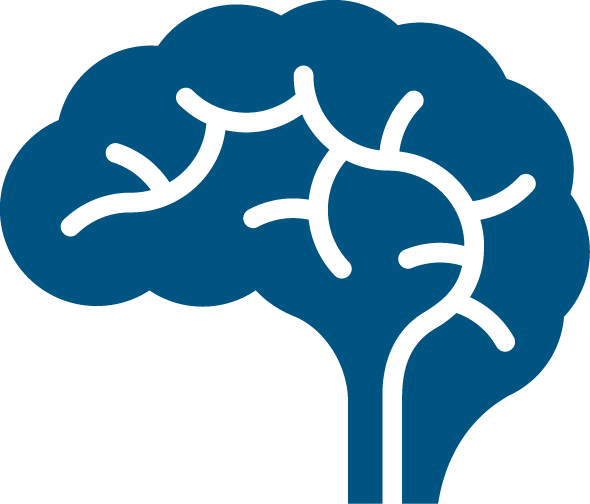
MnDRIVE Neuromodulation Fellowship Recipients
Join us in congratulating the recipients of the 2020-2021 MnDRIVE Neuromodulation Fellowships!
MnDRIVE Neuromodulation Research Fellowships
Graduate Fellows
Studying Human Cognitive Control through Deep Learning-based Causal Network Analysis
Satya Venkata Sandeep Avvaru, Ph.D., Department of Electrical and Computer Engineering. Mentor is Alik Widge, Ph.D., Psychiatry
About one in five American adults experiences mental illness. Unfortunately, existing treatments for mental illness are less than 50% effective. Dr. Avvaaru's research is aimed at identifying and understanding the underlying mechanisms behind cognitive control, which plays a critical role in mental disorders. This will lead to more effective treatment for various mental disorders where cognitive control deficits play a major role.
Anatomical and Functional Characterizations of Novel Purkinje Cell Projection to the Thalamus
Jessica Froula, Department of Neuroscience. Mentor is Esther Krook-Magunson, Ph.D., Department of Neuroscience
The cerebellum is a brain region that is important for both motor and non-motor functions, and it has even proven to be a useful therapeutic target in treating various disorders. Jessica's research project will explore a novel connection between the cerebellum and the thalamus. Uncovering new communication avenues by which the cerebellum engages with other brain will help inform effective strategies for disease intervention via neuromodulation.
Noninvasive Neuromodulation to Probe Causal Mechanisms of Fear Generalization
Ryan Webler, Department of Psychology. Mentor is Ziad Nahas, M.D., Psychiatry & Behavioral Sciences
The cortical circuits that presumably underlie fear in humans remain underexplored. The field’s limited knowledge about the neural basis of conscious fear states is based almost exclusively on correlative fMRI studies. Eliciting fear states while simultaneously stimulating brain regions thought to underlie these states represents an innovative, causal affective neuroscientific approach that addresses a critical knowledge gap for fear research.
Optogenetic Interrogation of Large-scale Cortical Networks During Development
Haleigh Mulholland, Department of Neuroscience. Mentor is Gordon Smith, Ph.D., Department of Neuroscience.
Our understanding of how perturbations of early brain activity may contribute to neurodevelopmental disorders is limited by a lack of understanding the circuit mechanisms that shape brain development. There is a need for new ways to study developing brain circuits in vivo. This project will provide novel insights into the circuit mechanisms underlying large-scale network formation and enhance our understanding of how systems for sensory perception emerge.
Transcranial Direct Current Stimulation Combined with Mindfulness Training as a Multilevel Treatment for Adolescent Depression
Michelle Thai, Department of Psychiatry and Behavioral Sciences. Mentor is Kathryn Cullen, M.D., Psychiatry & Behavioral Sciences.
Depression is associated with abnormalities in brain and body functioning. Understanding how treatment affects the brain and body will help maximize therapeutic benefits for patients suffering from depression. The first goal of this proposed project is to contribute to the development of new treatments that are safe and effective for adolescents with depression. The second goal is to increase knowledge about how to improve the effects of treatments for depression by examining how the brain and body change after treatment.
Postdoctoral Fellows
Optogenetic Neuromodulation of Addiction Relapse in Females
Andrew Chapp, Ph.D., Department of Neuroscience. Mentor is Paul Mermelstein, Ph.D., Neuroscience
Drug addiction remains a major health crisis in the United States and abroad, impacting all demographics and sexes. There is a tendency for women to have heightened susceptibility to drugs of abuse and drug relapse when compared to male counterparts. Estrogens underlie these effects. Using rodent models and novel tools, Dr. Chapp's project aims to evaluate specific brain circuits thought to be altered by estrogens to understand their role in cocaine relapse behavior.
Circuit Based Closed-loop Deep Brain Stimulation for Parkinson's Disease
Biswaranjan Mohanty, Ph.D., Department of Neurology. Mentor is David Escobar, Ph.D., Neurology.
Dr. Mohanty’s research will use new technologies evaluate whether changes brain activity in the cortico-subthalamic network has a causal relationship with rigidity and bradykinesia in Parkinson’s disease. The research will advance the development of brain stimulation therapies that restore network function.
The Effects of Parkinsonism and Pallidal Deep Brain Stimulation on Cortical Dynamic Functional Connectivity
Lingling Yang, Ph.D., Department of Neurology. Mentor is Jerrold Vitek, M.D., Ph.D., Department of Neurology.
Dr. Yang’s translational research project will improve our understanding of cortical network dysfunction in Parkinson’s disease (PD) and lead to more effective neuromodulation therapies for PD patients.
MnDRIVE Neuromodulation Discoveries through Industry Partnerships Fellowship
Algorithm Design and Platform Development for Epidural Spinal Cord Stimulation Optimization
Zixi Zhao, Ph.D. Department of Biomedical Engineering. Mentor is Theoden Netoff, Ph.D., Department of Biomedical Engineering.
In the United States, there are an estimated 300,000 people with spinal cord injury, and 20,000 new injuries each year. The costs in terms of disability and dollars are devastating. Though stem cell therapies and some pharmacological experiments have been conducted, Spinal cord injuries remain an incurable disease, and the situation calls for new therapies. With advances in eSCS and its companion streamlined digital optimization software, Dr. Zhao's project will aim to obtain FDA approval of the optimization software and bring it to the market in the near future.